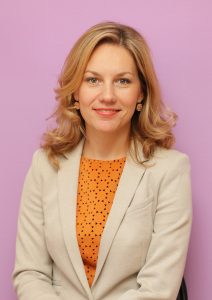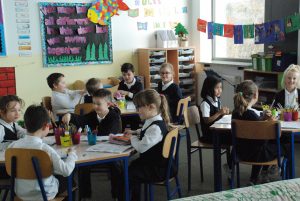The Bright Horizons British School in Zagreb implements the British National Curriculum along with the International Primary Curriculum. “This is a comprehensive curriculum with a clear learning process and individual learning goals for every subject, for personal learning and international orientation”, says Director of Bright Horizons, Milena Prodanić Tišma.

Our students come from all over the world, and we have a number of them from Croatia too. The main reason why they attend our schools is the uniqueness of our curriculum and the possibility of continuous education in programmes outside the Republic of Croatia,
1.The International Primary Curriculum is currently being implemented in over 730 international and national schools in 95 countries worldwide. Last year you celebrated the
school’s 5th anniversary. How challenging was to open another educational facility following
the success of your nursery?
The need to open this school emerged as a result of the absence of the vertical education in our
preschool programme. Plus, in our case, I can say that we are really happy and grateful
to the parents of our students that they have chosen us to follow their children through most of their growing up process, and that, in collaboration with them, we can use the element of upbringing, in addition to the educational one, to have a positive impact on their
growing up.

2.What does it mean to educate children for future jobs?
Learning is at the very heart of the International Primary Curriculum. This curriculum was devised to help children with learning and for children to enjoy it. To focus on learning also means to focus on grades and evaluation, and grades and evaluation are important ways
for us to find out whether children are learning. Since knowledge, skills and understanding
are learned in different ways, they are also taught, graded and evaluated in a different way.
Knowledge pertains to facts and facts can be right or wrong. The simplest way to find out whether children have learned the facts is to give them standard tests. Skills are practical and experiential. They cannot be right or wrong, but only developmental. To that end, the International Primary Curriculum speaks about learning skills in the context of the beginning
of learning, building and mastering skills. These three levels are not clearly delineated, and the perception of how each one looks differs from an individual to an individual. For this reason, in the International Primary Curriculum, grading is formulated in a special way and is
based on segments. It is extremely important to help our students to learn how to find their way around in new situations because we might be preparing them for future jobs that do not exist as yet. We have also put emphasis on new technologies and computer science is taught at our school from the first grade. Students can attend robotics classes after regular ones.
Part of teaching is done on tablets which encourages students to access online platforms where they can find Math exercises or maybe reflect on their work. We view STEM activities as tools for achieving even important competencies – key skills such as learning skills, problem-solving, collaboration, and communication, and personality traits such as curiosity, taking
initiative, persistence, adaptability, social and cultural awareness.
3. How many children do you usually enrol and which countries do they come from?
Our school grows because we enrol a new generation of first-graders each year. Next school year we will round off the vertical education from early preschool to elementary education
by opening the eighth grade. The highest number of students that we have in one classroom is 18.
4.What other projects does your school take part in?
EQUI-X is a project implemented by the Status M Organization in Croatia in partnership with the Vedri Obzori International Elementary School. The project develops, pilots and implements an innovative approach to working with children and young people on problems created by the peer, gender-based violence, gender inequality and absence of responsible behaviour, as well as on healthy lifestyle. Its aim is to contribute to gender equality and to prevent all forms of violence and risky behaviour. Under the project auspices, we conduct educational workshops with children and young people in partner schools. Students also devise and carry out mini public campaigns aimed at involving the wider community and raising public awareness about the problems of violence and gender inequality. The project is supported by the European Commission through the Rights, Equality and Citizenship
Programme, and is implemented in five European countries (Spain, Portugal, Belgium, Germany and Croatia) from 1 January 2018 to 31 December 2019.
